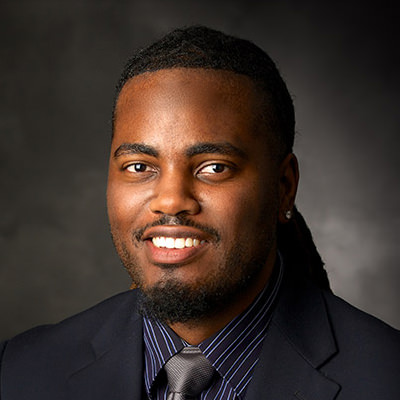Education
- John Marshall Law School, J.D.
- California State University, B.A.
Admissions
- All Georgia state courts
- Georgia Court of Appeals
- Georgia Supreme Court
- U.S. District Court, Northern District of Georgia
- U.S. District Court, Middle District of Georgia
- U.S. District Court, Southern District of Georgia
Memberships
- State Bar of Georgia
- Community Association Institute - Georgia Chapter
Brandon completed his undergraduate studies at California State University, Dominguez Hills. While earning his bachelor’s degree, Brandon was named Chief Justice of the Student Judiciary and was member of the Phi Beta Sigma Fraternity. Brandon graduated from John Marshall Law School where he has earned a position in the top 25% of his class. While attending law school, Brandon worked at the firm as a litigation paralegal. Brandon’s primary areas of practice are litigation, commercial collections, personal injury, and liability defense.
Georgia Court of Appeals - In a lawsuit seeking to recover unpaid assessments on behalf of a community association client, Lueder, Larkin & Hunter was unable to perfect service upon the owner at several different addresses. The Court issued an Order directing that service be perfected within one week or the case would be dismissed. We were finally able to locate an address for the owner in Texas and had a private process server make contact with the owner. The owner made an appointment with the process server to accept service, but later reneged on the agreement. The Court subsequently dismissed the case for failure to serve the owner. We then re-filed suit, and re-attempted service on the owner at the address we had previously located. The process server spoke to the owner through the building’s intercom system and was advised by the owner that she would not allow herself to be served. We then moved for service by publication, which was subsequently denied by the trial court. We then filed a Motion for Reconsideration which was also denied, and at the same time, the trial court dismissed the case a second time. We appealed, arguing that the trial court erred in denying the Motion for Service by Publication and in dismissing the complaint sua sponte. The Court of Appeals disagreed with the trial court and found that we had exercised reasonable diligence in getting the owner served and that, although not required, it was clear that the owner was concealing herself from being served. For these reasons, the Court of Appeals ultimately concluded that Service by Publication should have been granted and held that the trial court had abused its authority to dismiss the case.
Order Granting Summary Judgment in favor of the Association on its Claims and Against the Defendant’s Counterclaims - In a lawsuit involving collection an owner's unpaid assessments, the owner filed a counterclaim against the association alleging violations of the FDCPA and sought recovery of monies alleging spent to repair portions of the condominium building that the association was obligated to maintain. The owner’s theory of recovery was quantum meruit and unjust enrichment. Brandon Wagner filed a Motion for Summary Judgment on both the association’s claims and the counterclaim. The trial court granted Summary Judgment, finding that there was no dispute regarding the association’s claims. With respect to the the counterclaim, the Court agreed with us that the FDCPA does not apply to the Association and further found that the owner’s claims for recovery under quantum meruit and unjust enrichment are inapplicable when there is an express contract. The court found that the declaration of covenants constitutes an express contract, thus barring recovery under those theories. The court also found that even if there were no contract, the owner had not introduced sufficient evidence to sustain his claims for monies spent or that there was an expectation of repayment.
Order affirming the Trial Court Granting Summary Judgment - An association client sued the owners for unpaid assessments and judicial foreclosure. Both owners had been in bankruptcy at two different times and received two separate discharges. Subsequent to the bankruptcy discharges, they entered in a forbearance agreement whereby they agreed to make certain payments towards the lien balance. Ultimately, they defaulted and the suit was filed. After being served, the owners failed to file an Answer to the original complaint. The Association then filed an Amended Complaint and a Motion for Summary Judgment. In response to the Motion for Summary Judgment, the owners filed a Counterclaim and responded to the Motion for Summary Judgment, arguing that amounts sought were barred by the statute of limitations. The trial court granted the Association’s Motion and dismissed the Counterclaim as untimely. The owners then filed an appeal of the trial court’s Judgment. In response, Brandon Wagner filed a Motion for Supersedeas Bond, which was granted by the trial court. The owners appealed that as well, but the appeal was ultimately dismissed. With respect to the first appeal, the Court of Appeals affirmed the trial court’s order, finding that the forbearance agreement that the owners signed in 2013 was a new debt, which revived the statute of limitations and found that the counterclaim was filed untimely as the fact that an amended complaint was filed did not trigger a new deadline for the owners to file an Answer.
Education
- John Marshall Law School, J.D.
- California State University, B.A.
Admissions
- All Georgia state courts
- Georgia Court of Appeals
- Georgia Supreme Court
- U.S. District Court, Northern District of Georgia
- U.S. District Court, Middle District of Georgia
- U.S. District Court, Southern District of Georgia
Memberships
- State Bar of Georgia
- Community Association Institute - Georgia Chapter

